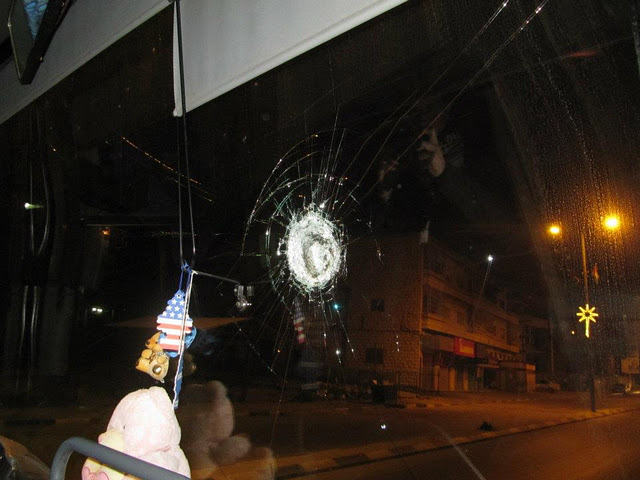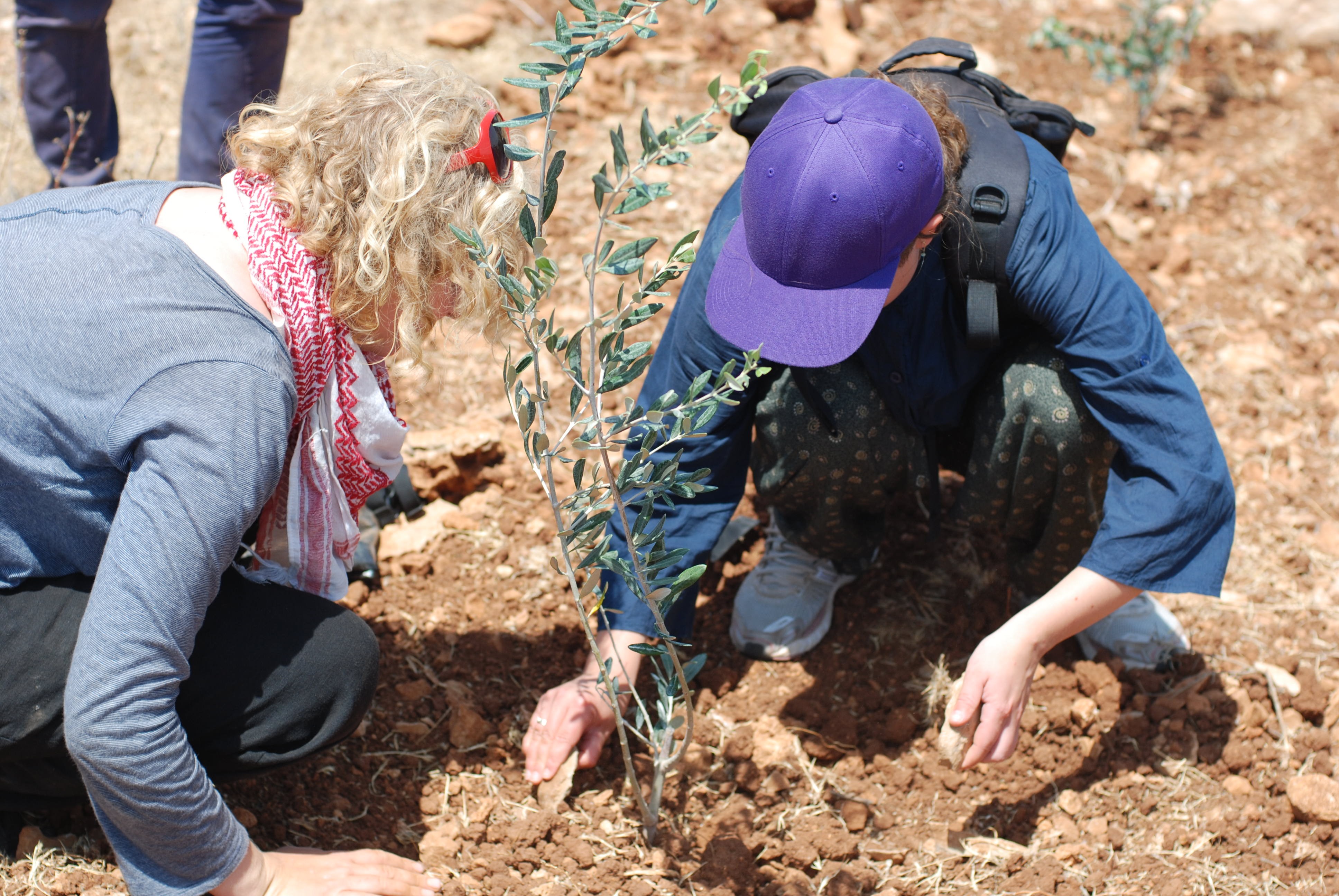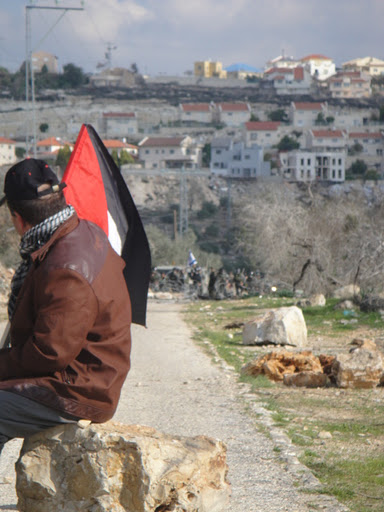Tag: Nablus
-
Choir bus hit by settlers on way back from Nablus
17 December 2011 | Notes from Bethlehem I was hoping to write about something more pleasant regarding our Christmas ministry in Nablus. I was hoping to write about the usual; singing and rejoicing with the believers there. As always, Nablus concert was special. The Anglican church where we usually go was full. There was joy.…
-
Your help needed: Donating olive trees this holiday season
19 December 2011 | International Solidarity Movement, West Bank As we creep up to Christmas and are seeing more and more trees appear in houses and high street windows, while we debate when to put up our own, if at all this year, I ask you all to give consideration to a much more special…
-
In Photos: Settlement too close for comfort
by Amal 16 December 2011 | International Solidarity Movement, West Bank Kufr Qaddoum’s resistance is only getting stronger and is showing no signs of slowing down. The resilience of the Kufr Qaddoum residents is remarkable. Every week the Israeli Occupation Forces have increased their aggressive attacks, and yet the people still join together every Friday…



